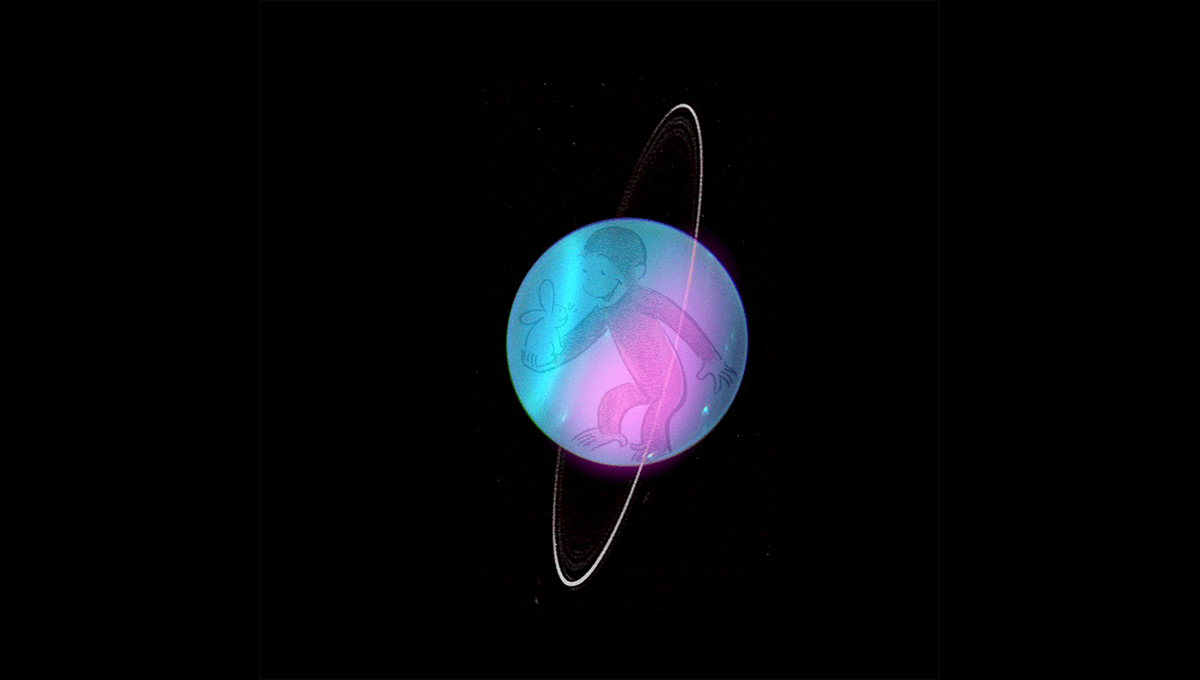
Uranus is undoubtedly the most oddly named planet in our Solar System, but things could have been worse. After all, being the only Greek god in a sky full of Romans is one thing; sounding like a butt is another; but a planet called George would just be silly.
Still, that’s what we almost had. Yes, really.
The discovery of Planet George
In March 1781, in Bath, England, the astronomer William Herschel became the first person to recognize what we now call Uranus as a planet. It was a history-making discovery in multiple ways: most notably, it was the first planet discovered with the use of a telescope – while it can be seen with the naked eye, it’s too dim and slow-moving for earlier observers to have recognized it as a planet rather than a distant star.
It also near doubled the size of the known Solar System – and set up the argument for potential planets even further out. “Psychologically, the case for the orbit of Saturn representing the outermost limit of the influence of the Sun had been compelling prior to 1781, since no new planets had ever been discovered, even following 150 years of telescopic observation,” wrote Chris Linton, Professor of Applied Mathematics at Loughborough University, in his 2004 book From Eudoxus to Einstein: A History of Mathematical Astronomy.
“But if there were more planets than those visible with the naked eye, why only one?” he explained. “The possibility that there were more planets waiting to be discovered had to be taken seriously.”
Perhaps the most material change brought by Herschel’s discovery, though, was for Herschel himself. In recognition of his achievement, the then-King, George III – the “mad” one who lost the Americas – rewarded him with a healthy pension. It was enough for the amateur astronomer to go full-time, ultimately “transform[ing] the starry heavens from a static backdrop […] into a vast dynamic region in which stars evolved from clouds of nebulous material,” Linton wrote. “In so doing he became the pioneer of modern sidereal astronomy.”
Naming rights
As the discoverer of the new planet, Herschel was invited by his scientific colleagues to come up with the name for it – a decision they would soon regret. In thanks for his newly elevated status, Herschel decided to name his new planet in honor of his royal patron, calling it Georgium Sidus, or “George’s Star”.
It was an unpopular decision for a few reasons. First of all, Uranus is not a star – in fact, that was kind of the whole reason Herschel’s discovery was important. But more importantly, George III’s reputation outside of Britain was not what you’d call universally positive: in the new United States, he was regarded as a tyrant; meanwhile “the French, preferring to avoid any reference to the monarch who still claimed the French throne in pretense, called the object ‘Herschel’ at the suggestion of Joseph Jérôme Lefrançois de Lalande, who wished to honor the discoverer,” explained astronomer John C Barentine in his 2015 book The Lost Constellations: A History of Obsolete, Extinct, Or Forgotten Star Lore.
Other scientists weighed in with suggestions: “The Swedish astronomer Erik Prosperin […] proposed ‘Neptune,’ which saw some popular support,” Barentine noted – worth pointing out that the real Neptune hadn’t yet been discovered, so this wouldn’t have been as confusing as it sounds – while the Swiss mathematician Johann Bernoulli favored “Hypercronius”, meaning “above Saturn”. Still, others proposed “Cybele”, in reference to Saturn’s wife, or “Oceanus”, after the mythological river surrounding the Earth.
Eventually, it was the German astronomer Johann Bode’s suggestion of Uranus – Saturn’s father, and thus Jupiter’s grandfather, in Greco-Roman mythology – that took off. By rights, it should have been “Caelus”, in keeping with the fully Roman planetary pantheon, but for whatever reason, Bode was really into Uranus: he constructed a detailed star map that he titled Uranographia in 1801, and would later inspire his colleague Martin Klaproth to name his newly discovered element “uranium”.
Herschel, however, wasn’t too impressed with the name. While there’s no evidence to the claim that he responded to the moniker with the derisive “Uranus? Mein Arsch”, he “always referred to it as the ‘Georgian planet’,” Linton wrote, “and this is how it was known in Britain for many years.”
And when we say “many years”, we’re talking… a lot longer than you might be thinking. As late as the mid-19th century, the UK’s Royal Nautical Almanac Office was still holding out hopes that “Planet George” might catch on – eventually giving up and accepting the name Uranus only in 1850.
A note on pronunciation
So, ultimately, we were robbed of a planet named George – but at least we got a ton of fun cosmological puns in return. But on that note – just how do you pronounce Uranus in any case?
“In most languages, it’s not really an issue,” noted The Planetary Society’s Planetary Report in September 2022. “In English, however, the popular pronunciation ‘your-AY-nuss’ provides all-too-fertile ground for jokes and tends to distract from the majesty and dignity of the planet itself.”
“But there is a common alternative: ‘YOOR-un-us’,” the article added. “This is how you’ll typically hear it pronounced by scientists, and it’s the pronunciation that NASA officially endorses.”
It’s less funny, and therefore arguably less distracting – but is it less correct? Well, the deity that the planet is named after was technically not “Uranus”, but “Ouranos” – or in the original Ancient Greek, Οὐρανός. And sadly for proponents of either English pronunciation, that sounds kind of like “oo-rah-NOSS” more than any play on words about butts or peeing.
So, next time some snooty scientist tells you off for laughing at the name of the seventh planet, feel free to inform them that their pronunciation is just as misleading. And, after all, the planet’s real name is George in any case.
Source Link: Uranus Almost Had An Arguably Even Funnier Name